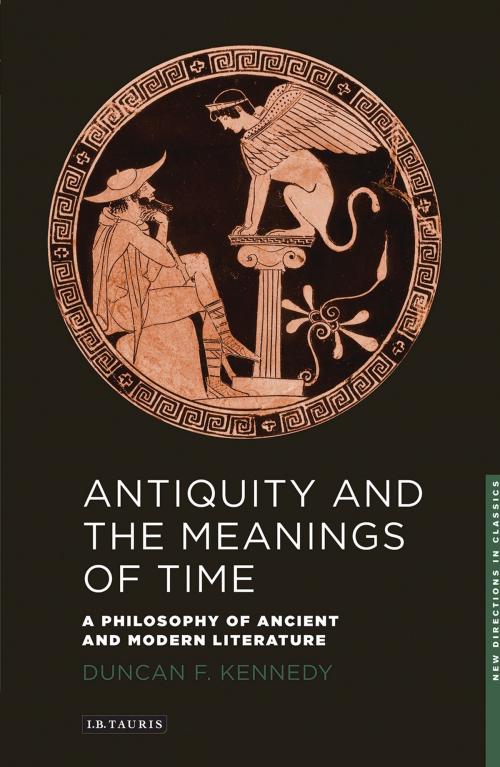Antiquity and the Meanings of Time
A Philosophy of Ancient and Modern Literature
Fiction & Literature, Anthologies, Literary Theory & Criticism, Nonfiction, History| Author: | Duncan F. Kennedy | ISBN: | 9780857733696 |
| Publisher: | Bloomsbury Publishing | Publication: | May 30, 2013 |
| Imprint: | I.B. Tauris | Language: | English |
| Author: | Duncan F. Kennedy |
| ISBN: | 9780857733696 |
| Publisher: | Bloomsbury Publishing |
| Publication: | May 30, 2013 |
| Imprint: | I.B. Tauris |
| Language: | English |
Society and contemporary culture are forever fascinated by the topic of time. In modern fiction, Ian McEwan (The Child in Time) and Martin Amis (Time's Arrow) have led the way in exploring the human condition in relation to past, present and future. In cinema, several recent cultural texts (Memento, Minority Report, The Hours) have similarly reflected a preoccupation with temporality and human experience. And in the sphere of politics, debates about the 'end of history', led by Francis Fukuyama, indicate that how we live is deeply determined by our relationship not only to place but also to the passing of time. In his major new work, Duncan F Kennedy takes up this abiding preoccupation and offers a nuanced reading of theories of time in relation to many of the most important writers of classical and late antiquity. He discusses a number of key texts (Homer's Odyssey; Sophocles' Oedipus Rex; Virgil's Aeneid; Ovid's Metamophoses; and the Confessions of Augustine) and imaginatively sets these side-by-side with modern works (such as Sterne's Tristram Shandy; Joyce's Ulysses; Orwell's Nineteen Eighty-Four; and Primo Levi's The Drowned and the Saved). His intention is to show that, from era to era, whether 'ancient' or 'modern', human beings have in different ways tried to articulate a coherent understanding of the process of history and of their place within it. Discussing with precision and clarity complex ideas relating to deconstruction, reception studies and psychoanalytical criticism, Kennedy's book represents a daring attempt to formulate a comparative cross-disciplinary philosophy of time in its own right, which will have considerable appeal to students and scholars not just in classics but in the humanities more broadly, as well as beyond.
Society and contemporary culture are forever fascinated by the topic of time. In modern fiction, Ian McEwan (The Child in Time) and Martin Amis (Time's Arrow) have led the way in exploring the human condition in relation to past, present and future. In cinema, several recent cultural texts (Memento, Minority Report, The Hours) have similarly reflected a preoccupation with temporality and human experience. And in the sphere of politics, debates about the 'end of history', led by Francis Fukuyama, indicate that how we live is deeply determined by our relationship not only to place but also to the passing of time. In his major new work, Duncan F Kennedy takes up this abiding preoccupation and offers a nuanced reading of theories of time in relation to many of the most important writers of classical and late antiquity. He discusses a number of key texts (Homer's Odyssey; Sophocles' Oedipus Rex; Virgil's Aeneid; Ovid's Metamophoses; and the Confessions of Augustine) and imaginatively sets these side-by-side with modern works (such as Sterne's Tristram Shandy; Joyce's Ulysses; Orwell's Nineteen Eighty-Four; and Primo Levi's The Drowned and the Saved). His intention is to show that, from era to era, whether 'ancient' or 'modern', human beings have in different ways tried to articulate a coherent understanding of the process of history and of their place within it. Discussing with precision and clarity complex ideas relating to deconstruction, reception studies and psychoanalytical criticism, Kennedy's book represents a daring attempt to formulate a comparative cross-disciplinary philosophy of time in its own right, which will have considerable appeal to students and scholars not just in classics but in the humanities more broadly, as well as beyond.















